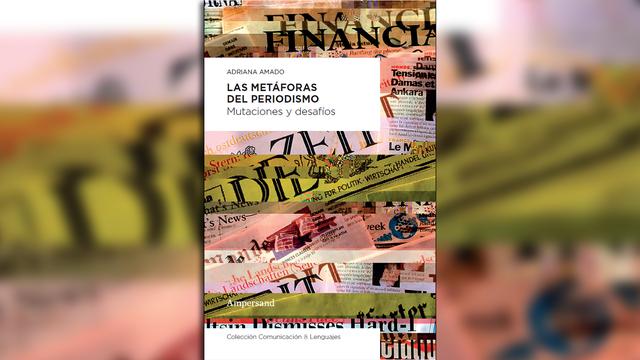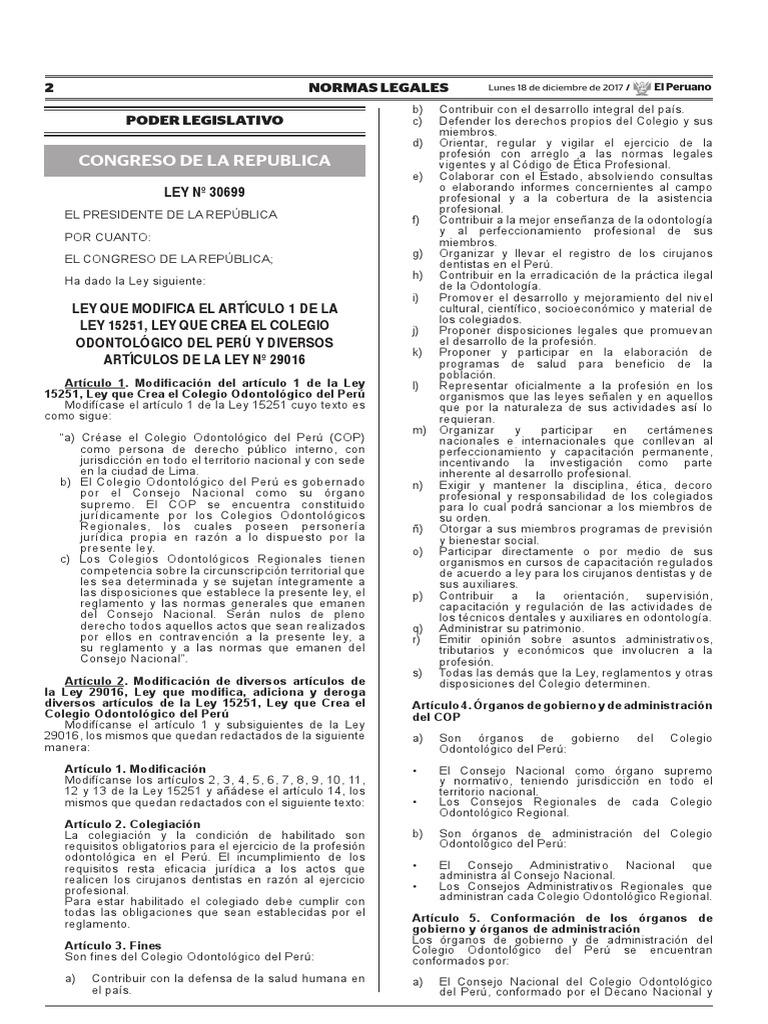Adriana Amado and the direction of journalism: "The gamer culture, interactivity, interaction prevails"
“Perhaps it is time to put an end to the idea that the media make an informed citizenry and better citizens make a better democracy,” writes Adriana Amado, a specialist in communication issues, in The metaphors of journalism. Mutations and Challenges (Ampersand), her recent book in which she reverses many of the commonplaces and in which, surgically, she sinks her scalpel into what has been held about the profession since the 19th century.
What are the challenges of journalism?; What place do social networks have in the media and what should they have?; how are the stories told and for what purpose?; How is information consumed today? Amado answers these and other questions through a tour in which he enters, as the title indicates, the metaphors of a trade: fourth estate, public service, truth, freedom of the press and more.
Adriana Amado is a teacher, researcher and media analyst, with a PhD in Social Sciences from the Latin American Faculty of Social Sciences, a Master's in Institutional Communication and a Bachelor of Arts from the UBA, who among other works has published Pop Politics: From Populist Leaders to Telepresidents; The press of the press: Journalism and public relations in information; Argentine journalism: models and tensions of the 21st century; Public communication as a spectacle, and Media, democracy and power, among others. In this dialogue via Zoom with Infobae Cultura he reviews some of the keys to the publication.
— Your book raises issues that affect not only journalistic work, but also the relationship of the media in the era of social networks with their audience, based on an approach to many journalistic metaphors that are taken for granted, common places, which according to your analysis are no longer so valid, what was the motivation for writing it?
— I sought to account for a new common sense, because the common sense that journalism has is one that comes from another era and this new common sense is not fully accepted. In fact, there is also a strong reaction in some groups or in some specialists to all this new common sense. So I felt that many of the journalists, especially those on the street, not the big celebrities, who are amphibious at that moment, needed someone to present the arguments, their intuition in black and white. This was kind of the exercise I felt like doing.
-— An exercise that exposes much of the functioning of digital media, the way in which they are articulated with social networks, but with a quite deep criticism regarding how they are taken and the little use that is made of them It serves as a source of information and communication.
—My proposal is to abandon the adjective digital, because in fact even the media that are supposed to be analog already do all their procedures digitally. Even the most daily newspaper is digital beyond the final support. In other words, digital is already a practice that cuts across everything. So I think that what is new about this journalism is not technology, which is already fully integrated. Moreover, for the new generations it is transparent. I believe that what this journalism does is this practice, there is a performance that the social networks expose, but which are not the social networks themselves, because there is also this reaction against the platforms, against the auxiliary of the networks. And what happens if I remove the network, I remove the technological part, the part of the device, and I think about the people who interact and what happens to journalism with these people: does it interact? Does it take the sources? Does it continue to consider them? a distant public that idealizes in a reader model? What is happening to us with those groups that also already give you back what they see in real time.
— What is mutant journalism?
— I took the mutant thing from (Alessandro) Baricco, who raises it in a 2008 book; In other words, later the book was already being published when the coronavirus caught us and it seems that I took the metaphor of the pandemic and in reality it is a metaphor that Baricco used to, precisely, account for that transformation. Now the pandemic has led us all to become epidemiologists and we understand much more what a mutation is: the small change in the genetic code of an organism that keeps it the same, but different. So one can understand that in the coronavirus whether you know it Delta, Landa or Omicron, they are still from the coronavirus, but they have different symptoms, different antibodies, even different solutions. And mutant journalism is this journalism that has small modifications in its genetic code, which makes it journalism, it is still journalism, but it is no longer that organism thought in the 19th century as the professional that was in charge of the exclusive production of Information. public. That is no longer the case, because the information is public, it is produced by everyone. I was just seeing a tweet from López Obrador who spoke about the journalists at the press conference and said, “why do I want you to ask me if what I want to say I say when I want to”. So the great tension that there was between leaders and journalism this century where they are considered expendable, where if I have my accounts on social networks, my own non-institutional advertising apparatus, my channels, my institutional media, why do I need the newspaper . And therein lies one of the great debates, is journalism still necessary? If your only function was to ask the leaders questions, because if the leaders now tell you “I don't need you to ask me anymore”, then you are left without direction. Luckily, there are other alternatives and there are other questions, but you also have to ask them.
— And what would those alternatives be? In the book you reflect a lot on the role of a journalist more as an articulator, in any case, of information. How should journalism stop in this new scenario?
— There are two myths of the 20th century that have no factual support. One is that information is power and the other is that content is king. Information is not power because information is everywhere, it is no longer exclusive, this came more from the Cold War where not a few had information. Today in a system that tends towards transparency that is obviously still in mutation and is not completely transparent, but one sees and already finds, for example, government initiatives, where all the data is public, where everything is said and It is published in real time. So the question is if the budgets, if the tenders and all those things that journalism went and revealed is public, what role does journalism have? And the other is content is king, because everyone is producing content and in fact a lot of the content that tends to get the most clicks comes from other people's networks, be it celebrity networks, presidential tweets, videos that filmed the Press Department of a government. So the question is where is the reign. It happens a bit like with the English monarchy, that the queen is Elizabeth, but what the world wants to know is what happens to the commoner Megan Markle. There is a shift in attention to personalities who perhaps do not have all the authorities or the hierarchy, but who are attractive and in that sense I think that there is a place of great value because there is too much of that, there is a flood of information. There is a flood of data, an excess of publications on social networks. So, the journalist, far from being the one who produced information from scratch, becomes a filter, a selector, a kind of DJ who does new and interesting things that make us dance with music made by others and it's not bad, but well there's also a bit of a debate if the DJ is a musician or not, if he has to win an Emmy or not. And something similar happens with journalism. Are you less of a journalist, since you work with secondary sources? And the counter question that I usually ask is “who starts from scratch?”, because even the biggest revelations and even Watergate is a leak from a source. Nothing would have happened with these journalists in that mythical exercise of journalism, if it had not been a source that said "here is something to publish." And I think that this is also where this mutation occurs again, where we feel that we are no longer the initiators of information, but we still do not value or rank this post-production of the infinite cascade of information that others are producing today.

— And what you are stating is that what is happening is that the networks are not being looked at as sources of information, that the media, especially in this part of the world, continue to think with a logic of clicks , with a quantifiable audience based on the old advertising system.
— In this amphibious passage, from the old model to the current model, it still lives in those two worlds. So, in the first step towards digital, the first reaction, the first resource was to consider the digital audience as a number, as the number of electorate or the rating number was considered, put in the clicks. But today other information is also beginning to be posted on that first layer, which is you, you can have many clicks, but if you don't have people who read it, if you don't have people who can reach the end of the note, if you don't have people who multiply it, who shares it, and who shares it well because you can share it to criticize it and to destroy it, then they are indicators that the click alone is useless. One can have many clicks, but if you don't have permanence... now that is beginning to be questioned. And the advertiser begins to ask for another type of density to that journalistic link. Then the other factor appears: does the business model of the 21st century media have to replicate that of the 20th century and does it have to continue to be an arrival? There are very, very healthy and very good experiments and projects for production financing. Without going any further, the verifiers are journalistic ventures that are financed in production and work, and have a lot of prestige. So there he also begins to question us and I would almost tell you it is a third division of a part of journalism, which before was within the newsroom because before the proofreader or verifier was part of the internal team and now it is outsourced and these third parties have financing for projects of organizations, of platforms. Then the question of who pays for the information begins to become more complex, which is no longer the final consumer with his subscription or with his time that the advertiser pays.
— What are the changes in terms of specialization with respect to the general information system?
— It is very probable that the system will adjust to this side, it is part of this transformation of a massive model that depended on scale: the more people reach it, the better for the survival of the environment. So what was done? The information was generalist because to get there you had to filter the information from the general and the simple, the simpler, the more people, the more general, the more people. But in the subscription model, the possibility that digital also offers with its hyper-personalization begins to arise, where you even generate a subscription from part of your medium. There is a very important part of the subscribers of the New York Times who do it for the crossword puzzle and does that offend the journalist who has the resources to produce background articles that perhaps less people read than the ones who complete the crossword puzzle? No, what it shows is this new diversification of the business and that a medium, the more channels, the more communities, also strengthens that general mission. The media of the last century or the 19th century still do not want to abandon that look; In other words, they resist, "I don't want to be a specialized newspaper." Is the generalist possible? And what is being seen is that it is possible to the extent that it is supported by communities or products, or very, very specific services for very, very specific communities.
— In the middle of all this, there are two phenomena well marked in the book, such as fake news and militant journalism
— I think it is related to what we are talking about communities, what has already been demonstrated after five long years in which the phenomenon of fake news and misinformation appeared as something new is that they are a niche phenomenon. They exist, but it is an intimate part of the general volume of what happens in social networks. I think the trouble we got into is that both journalism and politics began to take that niche for the universe. And then he began to suspect that people were misinformed, that people were participating in hate communities, that they exist, but what happens a bit with the anti-vaccination groups: they exist but they are a tiny part of the population and they do not even explain the success of vaccination, nor the small percentage that is not yet vaccinated. They are phenomena that exist but are in the minority and that perhaps were given too much importance. Here it was like a shot in the foot, because the problem, from my analysis, is the lack of connection of people with the news, especially in continents like Latin America, where a tiny part of the population is actively linked to the news . So when the informed group, the only thing that has transmitted over the last few years is that the news is not reliable, the only thing it does is confirm to the group that is out of the news that it is well to stay outside. So what you are seeing and what is seen in these years is that the greatest amount of news is declining in terms of audience. So the question is, do I want to discredit misinformation or gain confidence in the information? Because they are exclusive, I cannot shout that the news is false and at the same time pretend that people earn or dedicate time or effort, financial or otherwise, to subscribe to a medium. If I go from power saying that everything is disinformation, that everything is false, then what you see is that shift to more personal networks where, suspected that everything is false, you end up locking yourself in a group of people or referents of trust from which to obtain the information. And here another great phenomenon appears at this time and that is that the information no longer comes from a title. People rarely enter a portal to review all the information available; people enter the portals because of recommendations from others, because they saw it posted on their aunt's Facebook, because their co-worker sent it to them in the morning via whatsapp. In other words, it begins to be seen as a more omnivorous diet of information, which is healthy. And you see it in the groups of millennials and later who consume more information than baby boomers, much more, and it was seen in the pandemic where, in addition to consuming more information, they had a much more complex diet of information, where there was no single source. , there was multiplatform. There is even data showing that millennials read more newspaper news than baby boomers, but not exclusively. So this idea that you enter and are a subscriber to a medium, that you are a fan of a medium, begins to fray due to this diversity of information that also refutes this other thing about the information bubble. Today you have more chances of being exposed to news from a medium that you would never buy than when you received a subscription newspaper at home.
— And what about militant journalism?
— The audience chooses their references by affinity. Except for some analyst or someone who has a vocation for feeling bad, no one is exposed to news that tells them that one is living wrong. In the usual messages on the radio it is "Mr. journalist, that's what I always say." You surround yourself with like-minded people, your own library are like-minded authors. You wouldn't fill your library with books on subjects you don't care about. So I think that militancy has become this niche journalism, but the problem is the identity of the medium itself; In other words, it is sold as if it is selling plural information, but it is a problem of the identity of the medium. It is also expressed in that they are usually media with a very limited audience. There you also have another case of mutant journalism, because they are media that are paid by the interested party, they are not paid by the public, which are always few. So it is a propaganda journalism, a journalism with a political brand. And it is a journalism oriented towards the funding source that is legitimate and that is more evident than it is supposed, and people realize it more than it is supposed. Obviously it is a journalism of interests and therefore does not respond to the criteria of verifiability, plurality, public interest that make up the quality of journalism.
— At one point in the book you make reference to machine learning and how few media are still using it, but important media that are at the forefront and that end up, somehow, "infecting" other media outlets that follow them as an example. Do you think it is a possible direction?
— What artificial intelligence reveals is that a lot of journalism did routine tasks, which are not of much value. A journalism that says every day "this game won, the other tied", when an artificial intelligence engine can put the results online with much less margin of error than a person who is transcribing them, who has to be paying attention to the result of all matches. In other words, there are routine tasks that journalism can simplify using artificial intelligence and once again this new environment poses challenges: it is “ok, I'll take the routine out of you, are you prepared to add value to that information?" What happens to the weather forecast when everyone has a weather app on their phone? You have to give it a spin, turn it into a show, you have to put the images, you have to give testimony. And today it is one of the journalisms that most engages in this dialogue with audiences. Almost all the meteorological services ask you to send the hailstorm if there is a storm, to tell how the sunrise is in your town. There you have a reinvention of journalism in the face of the advance of the automatic in the weather report. In Spain, for example, the weather report at 3 in the afternoon is the great national program and it is a hierarchical place and it is good, but it is not "it is raining in the Balearic Islands", something else must be said.
— Later, at another time, you reflect on the construction of gamer culture applied to journalism, what is it about?
— It is the most fascinating of these times. In Latin America, which is a young continent, half of the population is under 30 years of age and that means that they were born and raised with interactive technologies, with video games. And the attitude of the gamer is not the same as that of the viewer, the generations over 40 spent a good part of their childhood sitting looking at cartoons, the gamer is part of those cartoons, he interacts with those cartoons with which he plays. That makes a very different culture in front of the screen, so we cannot expect that on the other side, especially in the younger groups, there will be a passive being waiting to see something, interactivity, interaction, participation prevails. When you ask questions, it's impressive how the answer comes back, even if it's from a tiny network. I work with two journalists who are very popular on the networks, Mosquitamuerta and the other is Osvaldo Bazán. The other day Osvaldo asked to be sent a photo of the little tree and it was impressive. Not only the response of the little trees, but that if I had had time I would have made a sociological profile of Argentina based on the photos of the little trees. But there is a game there, there is a game that summons the other. Why did the media abandon that? In fact, there are still radio programs that make a game of a slogan. Why don't we use it more digitally, right? Because even the verification of the news is not done as a game rather than as a sanction from a disciplinary court. Many media have very participative correction systems where they also thank the person who provided the data, summon it, and even generate new journalistic notes based on some data that the audience summons. Then the audience stops being that indignant madman saying "he was wrong, I can't leave them alone and they don't know how to write." They say “I am part of this news. So if there is something wrong, I also have to see. So the gamer culture, what it does is equate, the video game is nothing if there are no players playing and there is a journalism error that believes that it is essential, that it put it and that's it and that the note it published is the finished product, when in reality one should think of the published note as part of a long chain that is just beginning, when it is put in collaboration with the audiences.
— In this sense, media outlets such as The Guardian build news from the Tweets of their journalists, to which they later add information, a practice that is not common in the region.
— I even add you, many media publish the tweets of officials, but we all know that the most interesting thing about those tweets are the responses they receive. The interesting thing is what begins to happen below, if the majority says "bravo", if the majority answers them with a meme; In other words, if you only included this conversation in the note, it would be a note with much more interest. In fact, it is done when you say “what is the meme of the year”, right? And they put the memes or something happened and the memes exploded, which is already a classic. Well, that's where it starts, but still as a foreign phenomenon, a phenomenon of the networks when in reality it is part of this conversation that involves journalism. So neither journalism nor politics is added as part of that conversation, they still continue with a certain idea that exclusivity and scoop are values, when on social networks when you post something it is already from the people, your scoop lasts a second, does not exist.
CONTINUE READING
Sebastián Lacunza: “There was a canonized story about the Herald as a liberal newspaper, but that is not corroborated in history”A series of books to think about journalismA book to recommend: “The metaphors of journalism”, by Adriana AmadoFake news: who are the biggest spreaders







